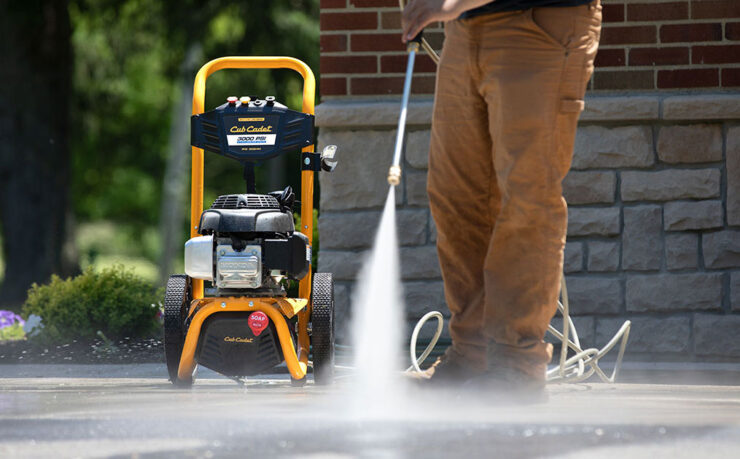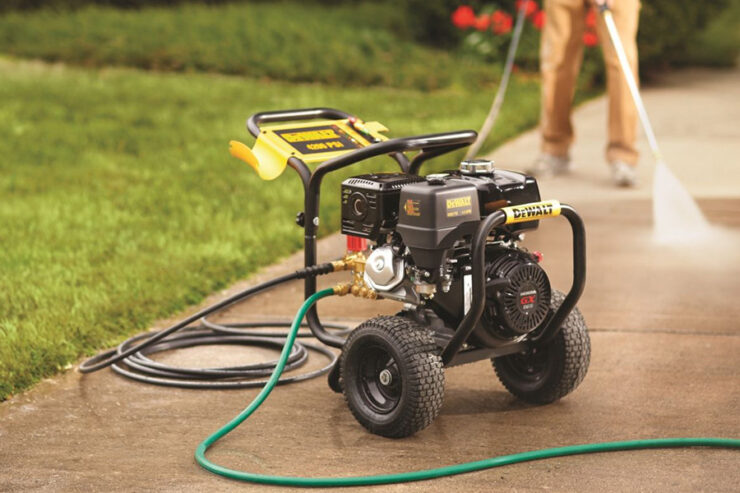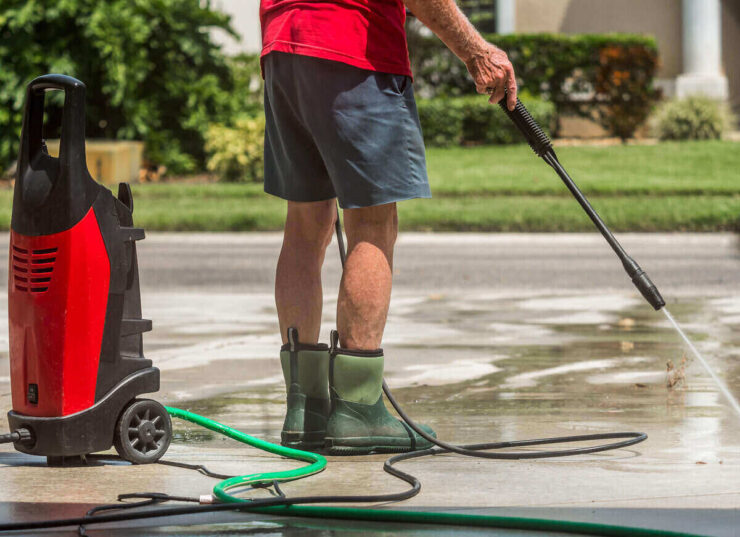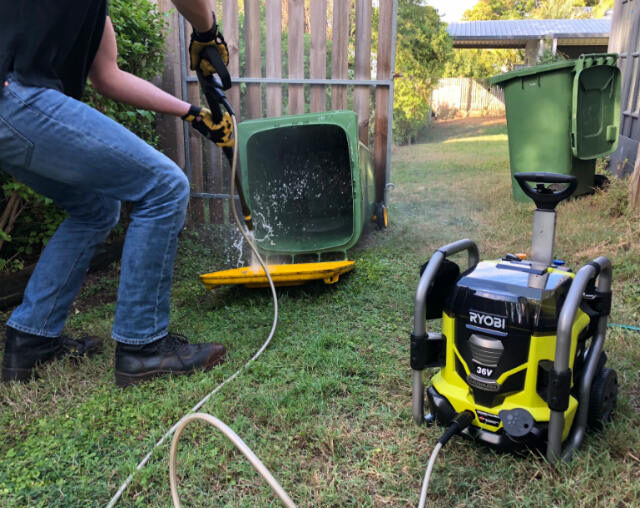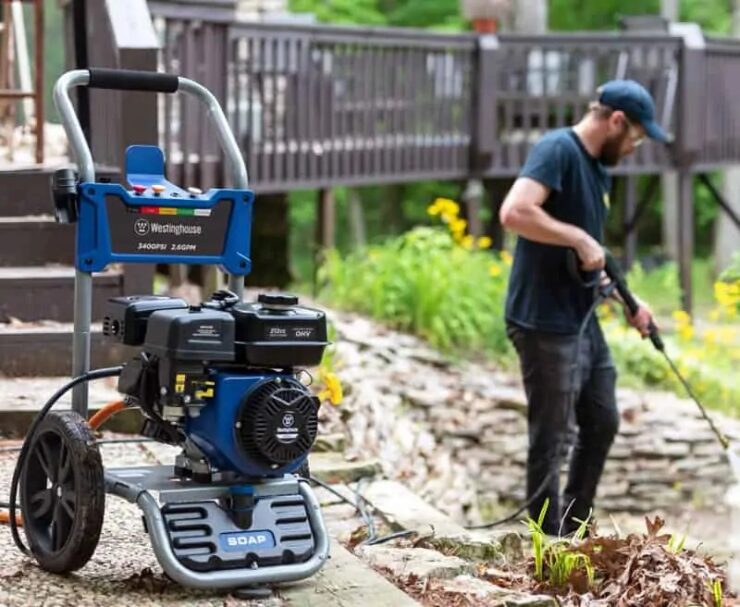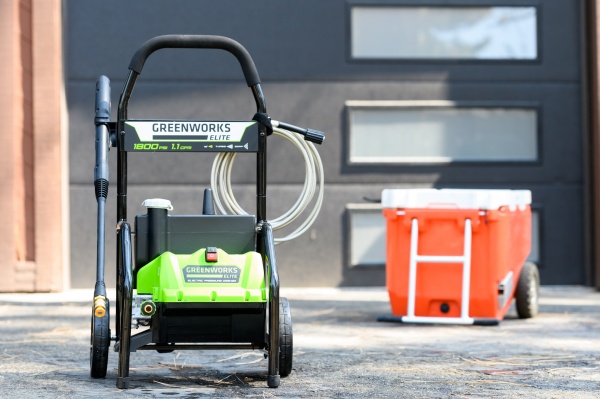Before buying a pressure washer, here are the things that you should know first.
Variety is the spice of life, and the same can be said of pressure washers. For decades, the only option was gas-powered machines, but now, the much more compact electric power cleaners have become available. Not only that, there are literally dozens of models to choose from, depending on your cleaning needs. But while it’s true that electric pressure washers have become the go-to cleaning tool for household purposes, gas-powered washers are still the better choice for more intense cleaning jobs.
If this is your first time buying a pressure washer, you have come to the right place. This buying guide will consider the basic functions of a pressure washer, types of pressure washers, and several product recommendations.
Page Contents
How a Pressure Washer Works
A pressure washer’s function is not exactly rocket science. Whether it has an electric or gas engine, the concept is the same: Water enters at low pressure and comes out at high pressure. What makes it possible is the engine that powers the pump. Each time the pump turns, water is pushed through the tip of the nozzle. As the pressure continues to mount, the water moves faster and comes out of the nozzle harder. If that pressure hits the surface, it will get rid of the dirt and washes it out.
Types of Pressure Washers
-
Gas-Powered Washers
Gas power washers are basically the biggest, baddest boys of the bunch. They release very high water pressure, which easily and quickly cleans everything in its path. Whether it’s chewing gum or tree sap stuck on the patio for years, it doesn’t matter. These are your best bets for intense cleaning activities. Since it has no long cords and whatnot, you can use a gas pressure washer in a location with no electricity or the outlet is at an inconvenient distance.
However, a gas pressure washer also comes at a price — literally and figuratively. It is expensive, requires periodic tune-ups, and operates pretty loud. More often than not, a gas pressure washer cannot be stored inside a home because it’s bulky. And because you’re handling a ridiculous amount of power, the risk of injury when using a gas pressure washer is relatively high.
-
Electric-Powered Washers
Unless a project requires professional-standard deep cleaning, an electric pressure washer is all you need. Its pressure is typically under 2,800 PSI, good enough for light to medium-duty cleaning around the house. The best part about these models is that they are almost maintenance-free and can be stored indoors because of their compact design. When it comes to budget, most are reasonably-priced and almost make zero noise when operated.
Of course, because it uses electricity to power the motor, your cleaning area is only as good as the cord and hose can take you. It honestly doesn’t matter that much unless you live in a thousand-acre home, but it is definitely worth mentioning. The nozzles and other parts of an electric pressure washer are mainly plastic, while gas-powered models are mostly metal.
-
Battery-Powered Pressure Washers
At about 500 PSI, there is no doubt that battery-powered pressure washers could not keep up with the big boys. However, it could be helpful in particular settings such as car washing or light-cleaning projects in places with no electricity. Its price range is similar to electric models, so if you have access to a power outlet, there is no reason why you should opt for battery-powered washers.
Choosing the Right Pressure Washer
When looking to buy the perfect power washer, you must determine the intensity of your cleaning projects first. The pressure washer’s power, measured in cleaning units (CU), is your barometer. (CU is calculated by multiplying pressure by GPM or gallons per minute.)
For instance, if a pressure washer peaks at about 1,500 PSI with a 1.6 GPM, its cleaning units rating is 2,400. If another power washer blasts at 1,600 PSI with a 1.4 GPM, its CU is 2,240. Therefore, the former cleans an area faster than the latter. However, keep in mind that pressure washers with high CU counts are generally more expensive. On top of that, you should not buy a pressure washer with more power than you need. That would just be needless spending.
Aside from the power of a pressure washer, there is the choice between cold and hot water models. Pressure washers that use cold water are generally more affordable. However, as a rule of thumb, whatever cold water models can clean, the hot water models can do better. Of course, that comes at a price, but depending on your cleaning projects, that’s probably something that shouldn’t matter.
Best Pressure Washers in the Market
-
Westinghouse WPX3400 Gas Pressure Washer
At less than $400, this gas-powered pressure washer is not as expensive as other models that cost twice as much. At 3,400 PSI and 2.6 GPM, the WPX3400 delivers considerable power for heavy-duty cleaning jobs. Its design, function, and construction are comparable to other high-priced brands. If your cleaning needs call for a high-powered machine, you should give the WPX3400 a long and hard look.
-
Sun Joe SPX3000
As the number 1 bestselling pressure washer at Amazon, the Sun Joe SPX3000 has a lot to offer at an amazingly reasonable price. Its pressure maxes out at 2,030 PSI with a 1.76 GPM. Some legitimate purchasers think it’s more powerful than they have believed, and yes, it’s a good thing! The unit also comes with different nozzles for different jobs, so you really don’t have to worry about anything. Just pick the right nozzle, aim, and fire!
-
Karcher 16033610 K5
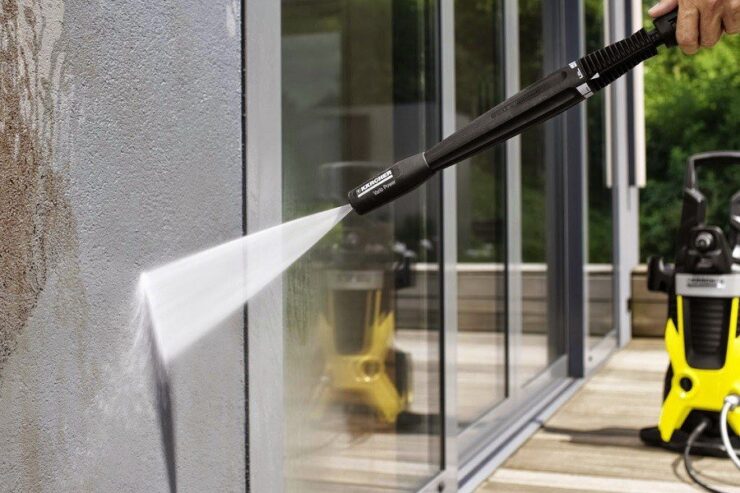
Some people argue that the Karcher K5 is better than the Sun Joe SPX3000, but it probably all boils down to preference. The Karcher is more expensive but claims to last five times longer than most electric pressure washers because of its water-cooled induction motor.
-
Greenworks PW-1800
The 1800 stands for 1800 PSI that the unit generates, making it the “weakest” among the group. However, as previously reiterated, sometimes you do not need too much power. This little green machine works admirably for washing cars, driveway cleaning, and other light-duty projects. The best part of it all is it costs less than $100!
-
WestingHouse ePX3050
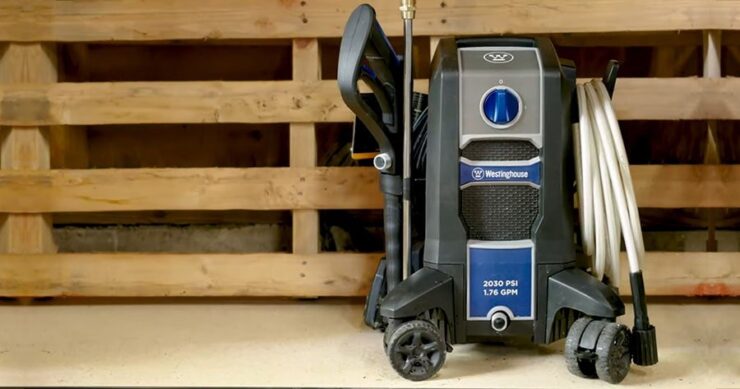
At 2,050 PSI and 1.76 GPM, the ePX3050 packs a pretty solid punch. Its lightweight design makes it easy to move and maneuver to other locations. The unit is also stable and nearly impossible to tip over. All its connections are pretty simple and secure, and you can get everything assembled in 10 minutes.
For more electric pressure washer recommendations and safety tips, you can find that at Cleanup Expert.
Final Thoughts
Pressure washers are the ultimate household cleaning tools. Some models can handle the most stubborn dirt and grime, while some are gentle enough to clean cars. What it all boils down to is your cleaning needs.
Gas power washers, for instance, are the perfect choice for commercial cleaning and heavy-duty cleaning projects. On the other hand, electric pressure washers are excellent options if you don’t need that much power. They are much cheaper and practically maintenance-free, but still effective enough to clean driveways, patios, and outside furniture.
Whatever the case, the rule of thumb is to always go for a pressure washer that fits your cleaning needs. Why waste a good amount of dollars for power that you won’t use? Conversely, you’d end up wasting time if you purchase a less powerful pressure washer for a heavy-duty cleaning job. Carefully evaluate what you need, and things will work themselves out.

